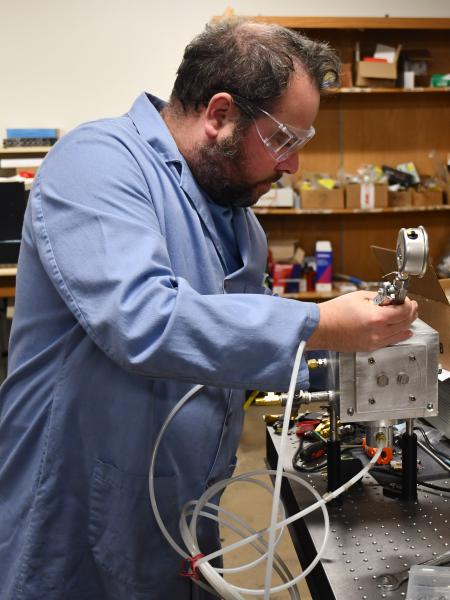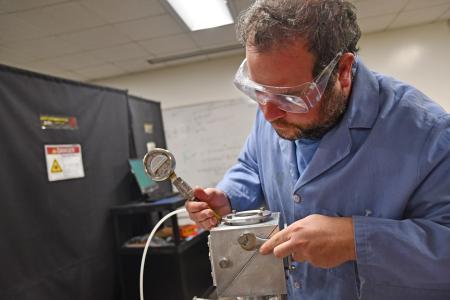National Science Foundation gives prestigious award to Dr. Joe Kalman

Many might not know that Dr. Joe Kalman, associate professor of Mechanical & Aerospace Engineering, is an early riser. He’s usually one of the first people on campus.
“When I got the email it was 6:30 a.m.; there was no one around to celebrate,” he joked.
This spring, Kalman received the prestigious NSF CAREER Grant for early-career engineering faculty. His award, titled “CAREER: Controlled Copper Oxide Reduction Using Inverse Dust Flames for Improved Chemical Looping Combustion,” will receive more than $500,000 over the next five years. It is only the second time COE faculty has been selected, and the first by a Mechanical & Aerospace Engineering faculty member.
“Receiving a second NSF CAREER grant in the College of Engineering is an indication of the strength of our early-career faculty,” said Dean Jinny Rhee “This is a highly competitive award given to junior faculty who exemplify the role of teacher-scholars through research and education.’
Early-career faculty are given three chances to submit a proposal for the award over their entire career. Kalman managed to get the award on his third try.
“This third proposal was just orders-of-magnitude better than the first. So, seeing my own development felt good,” said Kalman.
He and his students will combine physics, chemistry and several other disciplines to improve a process of burning fuel known as chemical looping combustion, which is a way of reducing greenhouse gas emissions during fuel combustion. This relatively new technique was first studied in the 90s.

The simple version is that oxygen carriers, like copper oxide, are reduced by fuel without nitrogen present, meaning there's no nitrogen-based pollutants. This also makes the carbon capture process more efficient.
Kalman will conduct experiments to further understand and control copper oxide throughout this process, making chemical looping combustion more efficient. Currently, one of its largest limitations is the lifespan oxygen carriers.
"The goal is that by managing the physical and chemical processes, we will regulate the crystalline microstructural evolution of the particles in a way that increases longevity," he said. "The idea is this flame approach enables more control over typical fluidized bed reactors used for chemical looping."
As part of the grant, Kalman will be able to give local community college students hands-on research experience.
“When a lot of these students transfer to CSULB, they just don’t have the lab experiences of their peers, and a lot of community college students come from underserved communities,” explained Kalman. “This was a chance to put actual research resources towards making an impact, the rubber meeting the road.”
Kalman’s Solid Propulsion and Combustion Lab continues to be on the cutting edge of materials science.





